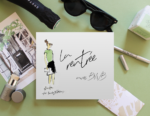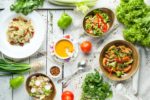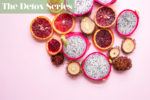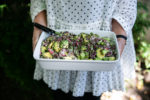What’s for Dinner? a French guide to making healthy food choices
Laurent Chevallier and Claude Aubert’s French guide to making healthy food choices
Sugar in excess, saturated fats, pesticide residue…? All these have become regular, unwelcome ingredients in our diets. How did we arrive at such standards when it comes to the quality of our food? The truth is, no single food is bad in its natural state. The problem comes in the way food is processed. We need to learn how to make certain choices in order to protect our health and well-being.
Dr. Laurent Chevallier and agricultural engineer Claude Aubert have joined forces to develop a new global approach to buying food. By learning how to choose responsibly, consume wisely, and cook well, we can all contribute to build a better future on a healthy planet.
Our new eating habits have impaired the human physiology on a very large scale. These include overconsumption of processed juices, sugar, fat, and salt.
Though organic products are trending, processed juice sales are down, and industrialized countries are consuming less meat, toxic products are well designed when it comes to messing with our senses.
_______________
In their book, Laurent Chevalier and Claude Aubert provide advice on how to avert your eyes and start eating well. For those who haven’t read the book, here are a few easy-to-implement hints to guide you in the right direction.

• Avoid high-mercury fish from polluted areas: swordfish, spike, sea bass, halibut, and skates.
• Although less polluted, avoid the following fish that are often contaminated: cod, tuna and salmon. Instead, choose sea bream, anchovies, sardines, shellfish and freshwater fish.
• The best and healthiest fruits and vegetables according to their antioxidants are: berries, wild berries, pomegranate, kiwis, lemons, and oranges.
• Antioxidant rich veggies include: kale, red cabbage, brussels sprouts and red peppers.
• Limit your consumption of processed foods.
• Always read the labels before you buy a product.
• Avoid corn syrup, present in a number of products such as sodas and industrial fruit juices. They generate a massive sugar intake to which the body is not programmed to assimilate.
• Eliminate “trans fats,” usually added to better preserve products, also known as hydrogenated fat.
• Limit the consumption of canned foods; instead favor fresh produce.
• Go for the most colorful fruits and vegetables. Their polyphenols content is higher. It protects us against cardio-vascular diseases and cancer.
• Favor organic products. In general, they have 10 to 20 times less pesticides and 20% to 60% more antioxidants. Since the agricultural food industry has grown tremendously and generated a lucrative source of income, the risks have also grown and some products are less environmentally friendly that the labels want you to believe. Chevalier and Aubert recommend farmer markets and local stores instead.
• Beware of false claims and learn to recognize lying labels. Widely used terms such as “natural” and “traditional” neither guarantee lawful regulation nor the absence of chemicals and synthetic products.
__________________
With these easy tips in your back pocket, feel empowered by this knowledge and prepared for your next trip to the super market. It’s time to enjoy those summer picnics carefree and healthily.






